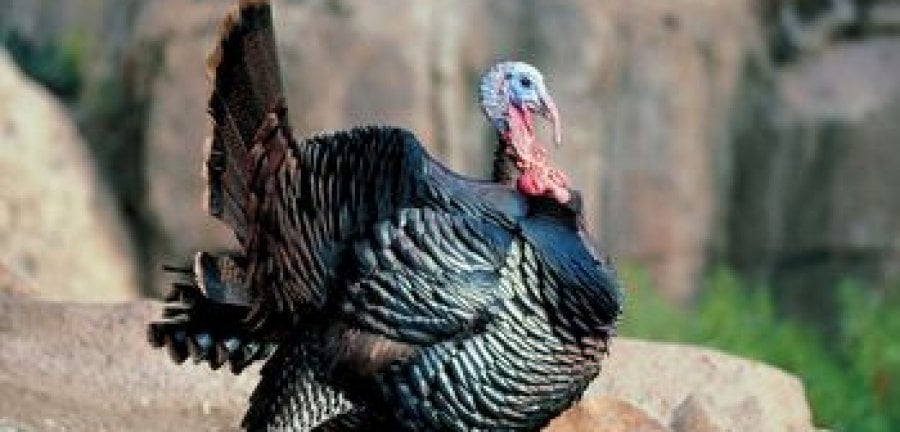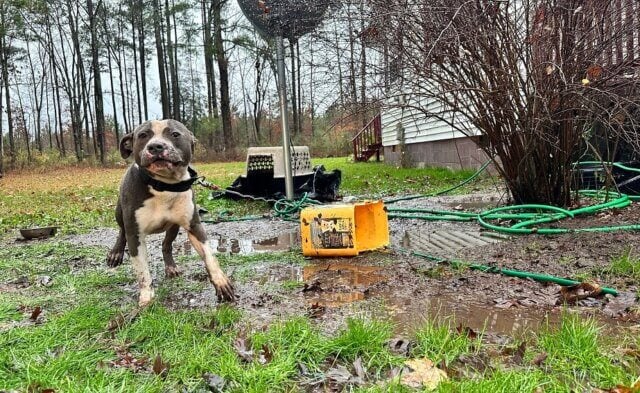A New Hampshire turkey farmer was in the news recently because of his unorthodox practice of giving his turkeys beer. One might naturally wonder whether this is inhumane since it could possibly make the turkeys drunk or ill, but he assures potential customers that turkeys “don’t seem to be the brightest, so they could stumble and you wouldn’t know if they drank too much or not.”
This farmer’s turkey husbandry may be out of the ordinary, but he’s pretty run-of-the-mill when it comes to insulting the birds’ intelligence. But are turkeys really that dumb? Not according to people who don’t have an interest in perpetuating the idea that they are little more than walking Thanksgiving centerpieces.
Ben Franklin called turkeys “a Bird of Courage.” He had tremendous respect for their resourcefulness and agility. So does retired Oregon State University poultry scientist Tom Savage, who says turkeys are “smart animals with personality and character, and keen awareness of their surroundings.”
Perhaps no one has a deeper insight into the workings of a turkey’s mind than naturalist Joe Hutto, star of the remarkable PBS documentary “My Life as a Turkey.” Hutto raised a flock of turkeys from birth and learned how alert, affectionate and observant they are. Turkeys possess “an extraordinary intelligence characterized by true problem-solving reason, and a consciousness that was undeniable, at all times conspicuous, and for me, humbling,” says Hutto. The young turkeys were keen observers of their environment, always noticed if anything – a fallen branch or a patch of disturbed earth – had changed and, if so, would carefully examine it. Hutto also noted that they had an extensive vocabulary, with specific vocalizations for individual animals, and he identified more than 30 specific calls.
Turkeys also have excellent vision and are able to recognize and distinguish between different humans. “I found that the turkeys were in fact suspicious of other people even at a great distance and could … discriminate between me and anyone else from a quarter of a mile!” Hutto says.
One turkey, named Sweet Pea, loved to climb into Hutto’s lap and curl up like a contented puppy.
Lest you think Hutto’s turkeys were unique, people who get to know rescued turkeys at sanctuaries report that they are similarly curious and discriminating.
Erik Marcus, the author of “Vegan: The New Ethics of Eating,” reports that turkeys “remember your face and they will sit closer to you with each day you revisit. Come back day after day and, before long, a few birds will pick you out as their favorite and they will come running up to you whenever you arrive. It’s definitely a matter of the birds choosing you rather than of you choosing the birds.”
Yet chickens and turkeys aren’t even considered animals by the federal government. They are inexplicably excluded from the Humane Slaughter Act, the only federal law that provides any protection for animals in slaughterhouses, which means that it is perfectly legal for chickens and turkeys to have their throats slit without prior stunning and to be dunked into the scalding-hot water of defeathering tanks while still conscious.
More than 210 million turkeys are killed every year in the United States – 46 million at Thanksgiving alone. Most of them are raised on factory farms, where they are confined by the thousands to windowless sheds. They are forced to stand in their own waste, and ammonia fumes burn their eyes and lungs. In order to prevent stress-induced fighting, their upper beaks are cut off with a red-hot blade, and to make them grow abnormally large abnormally quickly, they are genetically manipulated and fed growth-promoting drugs, which leads to painful, crippled legs and heart attacks. Turkeys are slaughtered when they are still babies, just 5 to 6 months old.
It’s bad enough that all these terrible things are done to turkeys without literally adding insult to injury by belittling and demeaning them. Maybe it makes people feel better about eating these inquisitive, sensitive birds to mock them and sneer at them, but if any of us had an ounce of decency, it should make us feel infinitely worse.





